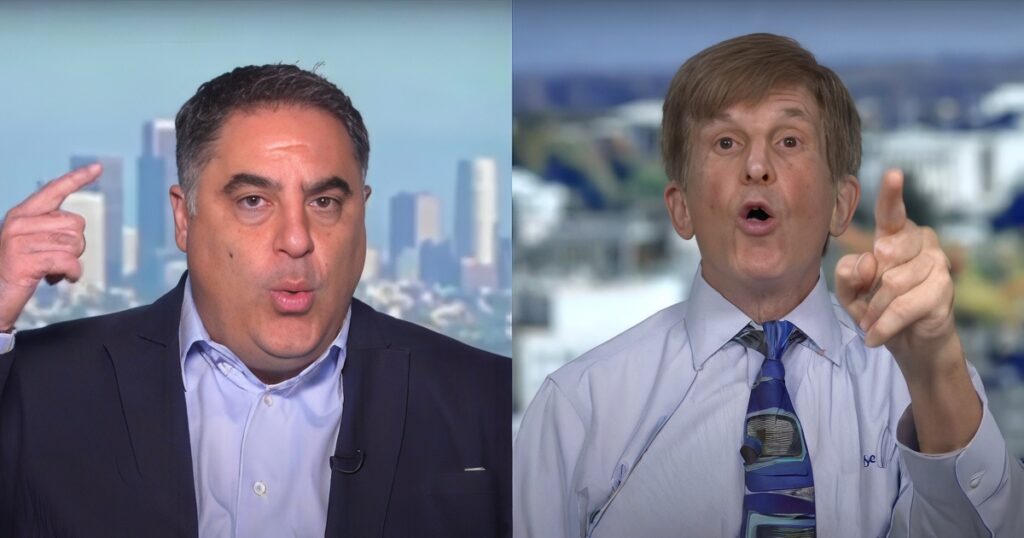The discourse surrounding elections often shines a spotlight on the deeper rifts within political groups, and the recent exchange between historian Allan Lichtman and Cenk Uygur of The Young Turks exemplifies such ideological clashes. Following Donald Trump’s notable electoral victory, the left has been engulfed in an introspective blame game, where various factions point fingers at one another for the perceived failures of their strategies and messaging. Lichtman, known for his predictive model “Keys to the White House”, offered his views during an interview wherein he attributed his miscalculated predictions to pervasive societal issues such as misogyny, racism, and xenophobia, alongside the spread of disinformation, which he claimed were more pronounced than ever. This reliance on broader societal factors reflects a tendency within the left to externalize blame rather than engage in self-reflection about their policies or candidate selections.
During the same electoral aftermath, Lichtman’s analysis took a dramatic turn during a heated panel discussion with Uygur, where their interaction descended into a contentious shouting match. Uygur, who has been critical of Lichtman in the past, seized the opportunity to question Lichtman’s credibility and the validity of his predictive model. In response, Lichtman, feeling cornered and disrespected, defended his long career as a scholar and author, proudly citing his extensive experience while rebutting Uygur’s aggressive personal attacks. The exchange highlighted the fragility of their egos, as both men resorted to personal insults rather than substantive debate, resulting in a showcase of theatrical animosity rather than intellectual discourse.
The conversation showcased significant contrasts between their approaches to political analysis and accountability. Lichtman focused on broader societal diagnoses to explain the electorate’s decisions, indicating that he perceives these factors as vital in understanding electoral outcomes. This perspective signals a broader liberal tendency to view public sentiment through lenses of identity and societal structures rather than on the effectiveness of specific policies or candidate choices. In contrast, Uygur’s criticisms were pointed, arguing that Lichtman’s analysis lacked credibility due to its failure to acknowledge the obvious electoral defeat. The former’s reliance on generalizations clashed with the latter’s more direct critiques, revealing varying understandings of political responsibility and voter agency.
As the dialogue intensified, Uygur engaged in personal jibes, even going so far as to mock Lichtman with silly gestures like the “cuckoo sign”, illustrating the escalating descent into disrespect. Lichtman, attempting to maintain an air of academic dignity, protested against the personal nature of the insults while pointing to the feedback from viewers who allegedly supported his views over Uygur’s. However, this back-and-forth effectively devolved into a futile squabble, as both appeared obstinate and unwilling to concede any ground or engage in constructive dialogue that could benefit their respective audiences.
Furthermore, the accusations and name-calling in their exchange served to distract from the underlying issues that both pundits ostensibly sought to address. The verbal sparring did little more than reinforce the notion that the left is divided not just in its ideological frameworks but also in its leadership and intellectual authority. As Lichtman leveraged his academic credentials in defense of his viewpoint, Uygur’s retorts emphasized a more populist approach, appealing to a community that often sees itself as misrepresented by elite intellectualism. This divide showcases the internal complexities within the left, manifesting in a struggle over whose perspectives and interpretations of events hold legitimacy in the broader narrative.
Ultimately, the public spectacle of their confrontation reveals how the political landscape is fraught with personal rivalries that obscure the more crucial issues at stake. Beyond the theatrics, both Lichtman and Uygur serve as representatives of larger movements that grapple with how best to engage voters and navigate the polarized atmosphere of contemporary politics. While they aim to articulate their ideologies, their combative exchange may alienate audiences rather than foster understanding or empathy. In the end, they depict a microcosm of a broader ideological struggle, revealing how individual egos can overshadow the collaborative effort needed to address systemic issues affecting their political aspirations and electoral outcomes. The encounter, while entertaining, ultimately serves as a cautionary tale about the dangers of personal animosity undermining meaningful discourse in the pursuit of political clarity and responsibility.

